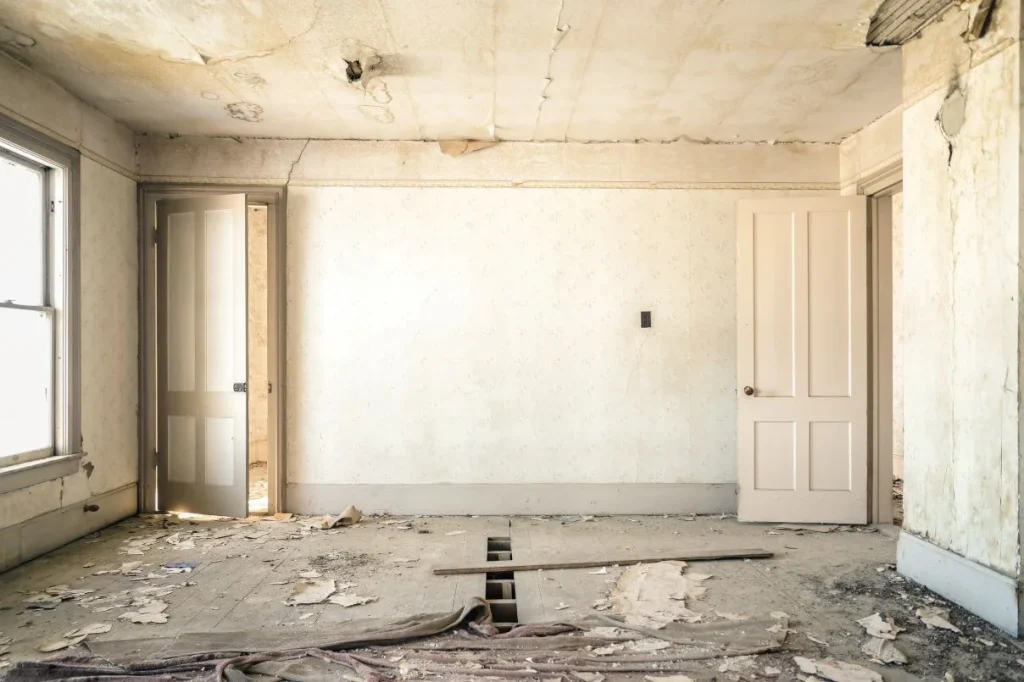If you are looking for properties in the real estate market that you want to invest in, you need to be cautious and vigilant about the property that you are considering to avoid stress and spending more. You should look for these possible red flags in the real estate industry that can bring more harm than good.
Fortunately, Crown Asia offers pristine yet secure house and lot properties. Moreover, the location of the properties they are also accessible to highway roads heading towards the city.
Crown Asia is a renowned real estate developer that specializes in creating premium and masterfully crafted properties in the Philippines. With a commitment to excellence and a reputation for delivering homes of exceptional quality, Crown Asia has established itself as a prominent player in the real estate industry.
Crown Asia offers a wide range of residential properties, including house and lot for sale packages, condo for sale, and townhouses. Each development is strategically located in prime areas, ensuring convenience and accessibility for homeowners. Whether it’s nestled in bustling urban centers or in serene suburban communities, Crown Asia properties are designed to provide a comfortable and deluxe lifestyle for its residents.
Investment Checklist for Real Estate Investing

Buying a nice home is a great investment opportunity, however, before purchasing, thorough and precise research must be implemented. Choosing the right property is crucial if you want to monetize the home.
1. Location of the property
Proximity to amenities, green space, scenic views, and the neighborhood’s status factor prominently into residential property valuations. Proximity to markets, warehouses, transportation hubs, freeways, and tax-exempt areas plays an important role in commercial property valuations. Location is still king and continues to be the most important factor for profitability in real estate investing.
What requirements are there?
Review the ownership and intended usage of the immediate areas where you plan to invest thoroughly, keeping in mind how the area is expected to change over the investment period, for example, today’s quiet open land at the back of a residential building could someday become a noisy manufacturing facility, reducing its value.
2. Your purchasing power
Knowing your spending limit is important before you even think about buying a property. You can narrow down your options in terms of location and space by using the budget to establish what kind of property you can afford. You can determine whether you can afford a studio apartment, a two-bedroom apartment, or a standalone villa by knowing your budget. In order to be more realistic about the type of investment you can make, you should organize your finances and determine what you can spare before contacting a real estate firm.
It’s crucial to include all potential hidden expenses when creating your budget, including any fees you may have to pay to banks or agencies, as well as any expenditures associated with remodeling, furnishing, or renting out a property.
3. Purpose of investment
Knowing what you intend to accomplish with the land can greatly influence the kind of property you need to acquire and where to buy it. It must be in the right location if you want to convert it into an office. However, you need a larger location if you want to make it into something commercial. Making the appropriate choice and gaining a clearer understanding of what you need can help you narrow down the possibilities available to better meet your specific needs.
4. Anticipation of Return on Investment
The return on investment is a crucial issue to take into consideration if you’re considering purchasing a property only for investment purposes. Consider your options, such as if you can rent it out right away or how long it would take to make your future plans. In order to choose the option that will maximize your investment, you should also think about how much profit you anticipated. Aside from that, another crucial component that determines whether it’s worthwhile to take the risk and be a major component in putting up a proper plan is the value of the property you’re investing in.
5. Payment schemes
Determine the optimal payment schedule for you after taking your budget into account. Will obtaining a loan from the bank enable you to obtain the liquidity you require? When will you finish repaying the loan? What kind of risk will you manage? Before making this significant decision, it is imperative that you fully comprehend all of these aspects, especially if you are unsure of the property’s value. In other situations, you might discover that paying for the property over time rather than all at once allows you the freedom to generate the necessary cash flow without having to pay the bank exorbitant amounts in interest.
Why It Is Significant to Be Familiar With the Real Estate Laws?

Before purchasing a home, it is essential to understand real estate laws and regulations for a number of reasons. These laws aim to safeguard both buyers and sellers by guaranteeing honest and open transactions and offering legal recourse in the event of disagreements. Knowing the rules governing real estate may help you manage the intricacies of property transactions and make wise judgments, whether you are a novice house buyer or a seasoned investor. Before buying a home, understanding real estate regulations is essential for the following reasons:
Legal Compliance: Because real estate laws differ from one jurisdiction to the next, it’s critical to follow all relevant laws and rules while purchasing a property. These laws include a wide range of topics, such as contract law, financing, zoning, land use, and disclosure rules. Failure to abide by these laws may result in legal repercussions, financial loss, or even the cancellation of the transaction.
Protecting Rights: Understanding real estate laws gives buyers the power to defend their rights as a buyer. They ought to be informed of their rights in relation to disclosures, warranties, and property inspections, for instance. By being aware of the regulations, they can make sure that the seller discloses all pertinent information regarding the state of the property and any potential problems that can influence their choice to buy.
Contractual Obligations: Purchasing real estate necessitates the execution of documents that are legally binding, such as purchase agreements, mortgage agreements, and lease agreements. The obligations of both parties are outlined in these contracts, together with the terms and circumstances of the transaction. Understanding the meaning of the clauses in these contracts will help buyers ensure that their rights and interests are effectively safeguarded.
Things That Are Considered Red Flags in Real Estate Investment

A house may be a fruitful, transformative investment. however, it might also be a total waste of money. Prospective buyers should carefully assess whether a home exhibits any red flags before making the decision to buy it.
Of course, a lot of buyers are open to making modifications and improvements. However, fixing a home’s defects can frequently cost more than the purchase was worth. Even worse, a property’s problems can be irreparable.
1. Cracks on the walls
Almost all foundations of poured concrete will fracture at some point, but hairline fissures are not a sign of trouble. However, having a foundation professional inspect the area if a crack is wider than 1/2 inch is a good idea. This also applies to cracks that seem to have just been repaired. Large fractures may be a sign of a foundational problem.
2. Insect infestations
It is advisable to be aware of the symptoms prior to making an offer because the presence of living termites can jeopardize a housing contract. Small clusters of tiny brown droppings on the ground close to a wall are one obvious sign. Other indicators include the presence of mud tubes on a foundation and a hollow sound when you bang on a wood surface. Due to their underground nature, termites build minuscule mud tunnels along walls and foundations to shield them from sunlight as they move between the wood they are eating and their underground nests.
3. Electrical issues can be dangerous and financially draining.
According to Howard, outdated or problematic electrical systems might pose a serious safety risk. In addition to endangering a customer’s safety, he pointed out that fixing broken electrical systems can be expensive.
It was agreed upon by Ganeshram, who added, “If you’re walking through a home and the electrical system looks like a tangled mess, that’s a clear sign that you may be in for some shocking surprises.”
4. If you notice leaks and water damage, exercise caution.
Water leaks are annoying especially it ruins the design of the ceiling of the home. Moreover, it is damaging, the appliances when a water leak is undetectable and it reaches electrical appliances. This would lead to a fire hazard as well.

Here are some other signs of leaking or water damage
Water Stains
Construction materials and water don’t mix. The drip of water from a leaking window or roof can cause structural wood members to deteriorate over time. Water stains that are yellow or brownish can indicate a plumbing issue on an upper floor. Don’t make an offer until you are certain of the source of the leak and the extent of the harm it has caused.
Lumpy and Baggy ceiling texture
No matter how charming and lovely the house may seem, a sagging ceiling is a major warning sign. Even a minor sag in the ceiling can be caused by roof leaks, a structural movement that causes the drywall to come free from the joists, or an insect infestation that weakens the joists. Regardless of the source, repairing it could be pricey.
“You’re not investing in a home, you’re investing in a money pit,” Ganeshram remarked if you have to continually deal with leaks and water damage.
5. Poor ventilation can result in a number of problems.
Ganeshram stated, “Houses are like people; they need to breathe. When it comes to mold, excessive patching on the walls can be a red flag. “A poorly ventilated home can be a breeding ground for mold and mildew.” He also said that there’s a good probability that a house’s walls actually are concealing secrets when they seem to be doing so.
6. The powerful scent of Air Fresheners
If you walk into a home and are hit with a powerful air freshener scent or see essential oil diffusers steaming away in every room, the owner may be attempting to mask the smell of something else, like pet urine-soaked carpeting or mold that is developing under the sink. Ask for a second viewing if you’re interested in the home and request that the seller refrain from using air fresheners prior to your arrival.
7. Long Time on the Market for the House
The length of time a home remains on the market before selling depends on a variety of circumstances, but according to real estate expert Zillow, this period usually lasts 68 days. Ask a real estate agent how long homes often stay on the market in your area, but in general, be wary of homes that have been listed for months or even years. It might very well contain hidden issues that would cost a lot of money to fix.
8. ‘Up-and-Coming’ Neighborhood of the House
Forbes claims that while residing in a community undergoing rehabilitation may be excellent, it may not be the case overall. Construction in a community under transformation implies loud noises and heavy machinery. Additionally, if you live in the property for a long enough period of time, the area may experience a population increase that you may not have anticipated when you bought the home.
9. Putting a Home Back on the Market
When a home suddenly re-enters the market following a sale, take caution. Although it’s possible that the agreement fell through for unimportant reasons, there might have been a serious structural issue that the original buyers were unwilling to deal with. It’s always advisable to have a home inspected before making a purchase.
Crown Asia’s Carmel

Carmel is a premier residential development project by Crown Asia. Located in the province of Cavite, Carmel offers pristine living in a meticulously designed community. With its exceptional features, prime location, and quality craftsmanship, Carmel stands as a testament to Crown Asia’s commitment to delivering outstanding homes.
One of the standout qualities of Carmel is its picturesque and serene environment inspired by the California lifestyle and home designs. Nestled amidst lush greenery and landscaped gardens, the community provides residents with a tranquil and peaceful atmosphere. The well-planned streets and sidewalks offer a safe and convenient environment for families, promoting a sense of security and harmony.
Carmel offers a diverse selection of beautifully designed houses that cater to the unique preferences and needs of homeowners. The houses range from spacious single-family homes to elegant townhouses, ensuring there is something for everyone. Each residence is crafted with the utmost care, employing high-quality materials and contemporary architectural designs. The attention to detail is evident in every aspect of the homes, from the exquisite interiors to the well-appointed living spaces.
Related Blog: Why is Residential Real Estate Good to Invest in?


